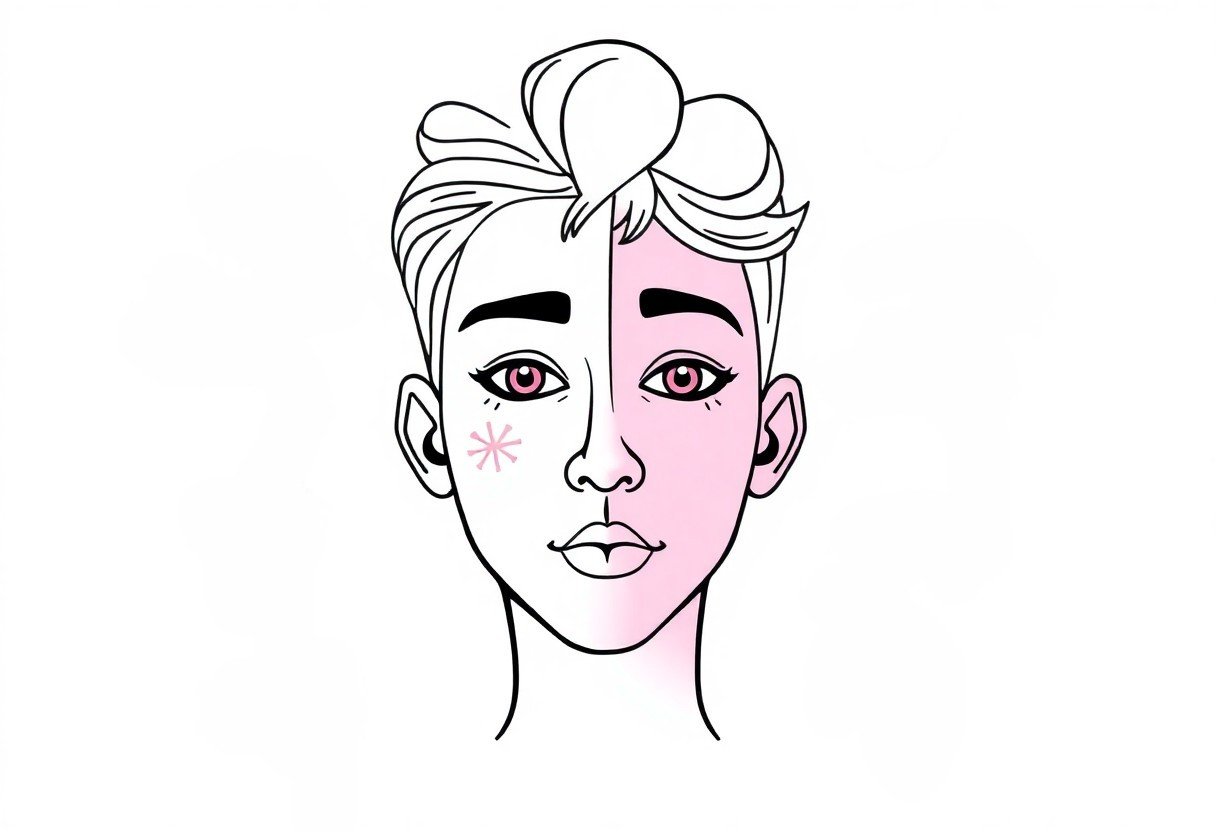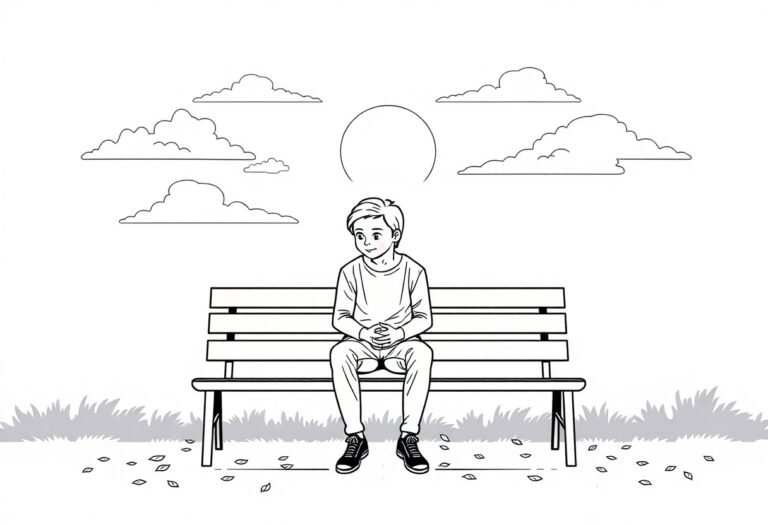How Do Dramatic Personality Changes Reflect A Teen’s Mental Well-Being?
You might notice significant shifts in your teenager’s behaviour and personality, which can often signal underlying mental health challenges. As they navigate the complexities of adolescence, these Dramatic Personality Shifts in Teens may reveal a lot about their emotional and psychological state. Understanding these transitions can help you identify potential issues and support your teen in fostering a healthy mindset. This blog post will explore how such personality changes intertwine with their mental well-being and what steps you can take to encourage positive development.
Key Takeaways:
- Dramatic personality changes during adolescence can be indicative of underlying mental health issues, such as anxiety or depression.
- Changes in behaviour, mood, and social interactions may signal a response to stressors in a teen’s life, including peer pressure and academic expectations.
- Open communication between parents, guardians, and teens can help identify and address any concerning shifts in personality.
- Professional assessment and support can provide valuable tools and strategies for managing emotional and behavioural changes in adolescents.
- Encouraging healthy coping mechanisms and emotional expression can promote better mental well-being and stability in teenagers.
Understanding Personality Changes in Adolescents
The teenage years are a pivotal stage in a person’s development, marked by significant shifts in personality. As you transition from childhood to adulthood, your identity evolves, influenced by hormonal changes, social environments, and the quest for independence. These transformations can have pronounced effects on your behaviour and relationships, impacting your mental well-being and requiring attention and understanding.
The Nature of Personality Development
One of the most fascinating aspects of the teen years is your personality’s dynamic nature, as it continually evolves based on experiences, relationships, and internal reflections. This stage of life serves as a foundation for shaping your future identity, often marked by exploration and experimentation. You may find yourself trying out different roles and adapting your behaviour to fit in or express your individuality.
Common Personality Changes During Teenage Years
Beside the rapid physical changes, you may also experience shifts in your mood, confidence, and social preferences during your teenage years.
And during this time, you might find yourself becoming more independent, seeking to assert your individuality and establish your own beliefs. This could manifest as a shift in interests, social circles, or even your viewpoint on various issues. However, it’s important to be aware that these changes can also lead to a tendency for extreme emotional responses, such as irritability or mood swings. While exploring new identities, you may also struggle with peer pressure and social acceptance, which can significantly affect your self-esteem and overall mental well-being. Supporting yourself through this period of growth is vital for fostering a healthier mindset.
Factors Influencing Dramatic Personality Changes
If you’ve noticed significant shifts in your teen’s demeanour, various factors can play a role in these dramatic personality changes. Here are some key influences:
- Biological changes
- Social interactions
- Environmental conditions
- Mental health issues
After considering these influences, it’s important to pay attention to how they manifest in your teen’s life.
Biological Factors
Between the ages of 12 and 18, teens undergo significant biological changes, which can greatly affect their personality. Hormonal fluctuations may lead to increased mood swings and emotional reactivity. Additionally, brain development during these years can affect decision-making and social behaviour, impacting how your teen interacts with others. These physical changes often exacerbate existing challenges and can lead to a profound change in behaviour. After evaluating these biological aspects, it’s clear that they significantly shape your teenager’s mental state.
Social and Environmental Influences
An array of social and environmental influences can also contribute to your teen’s personality shifts. Peer pressure, family dynamics, and school environment all play pivotal roles in shaping their attitudes and behaviours. Social interactions can lead to both positive developments, such as increased confidence, or negative impacts, such as anxiety from feeling unaccepted. Furthermore, significant life events like moving, changing schools, or experiencing loss can dramatically alter behaviour. It’s important to understand these influences as they often reflect in the dramatic changes you notice in your teenager’s personality.
Social environments, particularly friendships and relationships, can also influence your teen’s mental health. Supportive friends can promote a sense of belonging and positively impact their self-esteem, while toxic relationships can lead to feelings of isolation and anxiety.
Mental Health and Personality Shifts
Not all personality changes signal growth; they can also indicate underlying mental health issues. During adolescence, you may notice fluctuations in your behaviour and temperament as you navigate various challenges. These shifts can stem from emotional struggles, social pressures, or even changes in your environment. Recognising these transformations is imperative as they often act as a mirror reflecting your mental well-being and deserve your attention and care.
Signs of Mental Distress
Along with personality changes, you might observe signs of mental distress such as heightened irritability, withdrawal from friends, or changes in sleep patterns. These behaviours can manifest as a response to overwhelming challenges. It’s vital to be attentive to your feelings and actions during this time, as they can signify a need for support and self-care.
Correlation Between Personality and Emotional Well-Being
Along with recognising signs of distress, understanding the link between your personality and emotional well-being is vital. Shifts in your personality traits can reflect your emotional state and the challenges you are facing. For instance, increased anxiety may lead to a more withdrawn demeanour, while enhanced confidence might result in outgoing behaviour. Recognising these correlations helps you address your mental health proactively.
Consequently, by understanding the dynamics between personality changes and your emotional health, you empower yourself to take action. You should be aware that significant shifts may indicate underlying issues like stress, anxiety, or depression, which can manifest as changes in your habits, social interactions, or self-image. Developing insight into these patterns can aid in enhancing your overall well-being and prompt necessary interventions, whether through self-help strategies or professional support.

The Role of Parenting and Communication
Once again, the significance of parenting and open communication cannot be overstated when it comes to a teen’s mental well-being. Your approach to parenting directly influences how your teen navigates emotional turbulence and personality shifts. By fostering a supportive atmosphere where feelings are validated and discussed, you empower your teen to express themselves authentically. This connection can serve as a protective factor against harmful external influences, promoting resilience and healthy emotional development.
Supporting Healthy Personality Development
The foundation of healthy personality development lies in your intentional efforts to nurture your teen’s self-esteem and emotional intelligence. Engage them in activities that encourage self-reflection, creativity, and critical thinking. Your consistent involvement and guidance can help them build a strong sense of identity, which is vital during these formative years.
Effective Communication Strategies
Communication plays a key role in connecting with your teen and understanding their evolving emotions. You should encourage open dialogues by actively listening to their thoughts and feelings without judgment. Ensure that they feel safe to share their experiences with you, facilitating a non-confrontational atmosphere. This trust fosters an environment where your teen can discuss their challenges, significantly reducing feelings of isolation.
With engaging dialogues, you can implement practical strategies to enhance communication. Stay present during conversations, minimising distractions such as devices or television. Ask open-ended questions that promote deeper discussions, showing genuine interest in your teen’s thoughts. It’s vital to validate their feelings and reassure them that it’s acceptable to struggle with their emotions. Encourage them to share scenarios in which they felt overwhelmed, allowing you both to explore solutions together. By employing these strategies, you create an open space for your teen to express themselves, effectively promoting positive personality development.
Identifying When to Seek Help
Keep an eye on your teen’s behaviour and emotions. If their personality shifts dramatically over several weeks or months, it’s necessary to take these changes seriously. Often, these shifts may indicate underlying mental health issues that require attention. Being proactive is key, so don’t hesitate to seek professional guidance when your gut tells you something is off.
Warning Signs for Parents
Below are some warning signs to watch for. If your teen exhibits significant mood swings, withdrawal from friends and family, a decline in academic performance, or changes in sleep and appetite, these may indicate they are struggling. Additionally, if they engage in risky behaviour or express feelings of hopelessness, it’s important to reach out for help right away.
Available Mental Health Resources
Identifying the right resources can significantly aid your teen’s mental health journey.
Plus, there are many accessible mental health resources you can explore. Schools often provide counsellors who can offer support. Additionally, community clinics and online therapy platforms are excellent options to consider. Don’t overlook national hotlines and support groups that cater specifically to teens. Engaging with these professionally trained individuals can provide your teen with the assistance they need to navigate their emotional challenges effectively. Be proactive—you have the power to make a difference in your child’s well-being.
Case Studies: Real-Life Implications of Personality Changes
Many individuals have experienced significant personality changes during their teen years, reflecting mental well-being fluctuations. Here are a few notable case studies:
- Case Study 1: 16-year-old Sarah, who was once outgoing, became withdrawn after her parents’ divorce.
- Case Study 2: 15-year-old Jake showed enhanced aggression and irritability due to unresolved grief from a sibling’s passing.
- Case Study 3: 14-year-old Emily transformed from a shy student into an outspoken advocate for mental health awareness after attending therapy.
Success Stories
An inspiring transformation can lead to profound improvement in your quality of life. For example, 17-year-old Michael, who struggled with severe anxiety, sought help and developed coping strategies. He not only regained his confidence but also became a peer counsellor, helping others with similar challenges.
Lessons Learned from Challenges
By analysing various personality changes, you can gain insight into the emotional challenges many teens face. Recognising these shifts can help identify underlying issues and promote supportive environments.
Hence, it is crucial to acknowledge that addressing personality changes can lead to significant improvements in a teen’s life. Understanding the factors that contribute to these shifts allows you to provide effective support and enhance your awareness of mental health challenges. These lessons remind us of the importance of compassion and proactive measures in fostering resilience in adolescents.
Summing up
Drawing together the insights on dramatic personality changes during adolescence, it becomes evident that these shifts can serve as indicators of your mental well-being. By observing fluctuations in your mood, behaviour, and interactions, you gain valuable insight into your emotional state. Being aware of these changes allows you to seek support when necessary, fostering a healthier mindset and promoting resilience during a transformative phase of your life. It’s important to stay attuned to your feelings and reach out for help if needed, ensuring that your mental health remains a priority.
FAQ
Q: What are some signs of dramatic personality changes in teens?
A: Signs of dramatic personality changes in teens can include sudden mood swings, withdrawal from social activities, changes in friendships, alterations in academic performance, and shifts in interests or hobbies. Parents and caregivers should be attentive to these changes, as they may indicate underlying issues related to mental well-being.
Q: How can personality changes in teens be linked to stressors?
A: Personality changes in teens often arise in response to various stressors, such as academic pressure, relationship issues, or family dynamics. These external pressures can lead to emotional distress, prompting a shift in behaviour that may reflect anxiety, depression, or other mental health challenges. Identifying these stressors can help in understanding the teen’s mental state.
Q: What role do peer relationships play in a teen’s personality changes?
A: Peer relationships are significant for teens and can greatly influence personality changes. A teen may adopt different behaviours or attitudes based on their friendships. Positive peer influences can foster healthy development, while negative influences may lead to risky behaviours or social withdrawal, both of which can impact mental well-being.
Q: How can parents support a teen experiencing personality changes?
A: Parents can support a teen experiencing personality changes by maintaining open lines of communication, actively listening without judgment, and encouraging expression of feelings. It’s also beneficial for parents to educate themselves about mental health issues, as this awareness can help them provide appropriate guidance and seek professional help when necessary.
Q: When should parents consider seeking professional help for their teen?
A: Parents should consider seeking professional help if their teen’s personality changes are persistent, significantly impact daily life, or are accompanied by other troubling signs such as self-harm, substance abuse, or severe anxiety. Engaging with a mental health professional can provide valuable insights and strategies for both the teen and the family to address these challenges.
Check your mental health symptoms on NHS.
Mental Health in Children and Adolescents | Mental Health and Demographics







